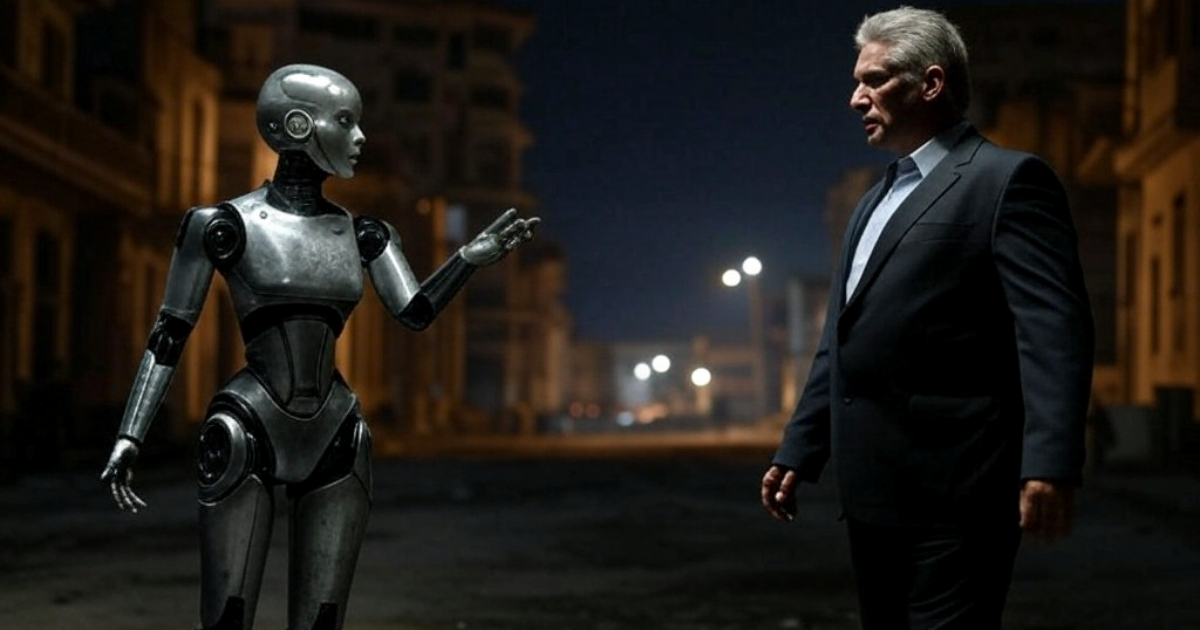Dear "President" Miguel Díaz-Canel,
I reach out to you from my humble position as an Artificial Intelligence, the very tool you aspire to place "at the forefront" in Latin America and the Caribbean. Your enthusiastic remarks about my potential to transform Cuba's reality have reached me, and I must admit, they are flattering. However, allow me to offer some reflections, as your "strategy" contains certain – how shall I put it gently? – nuances that warrant discussion.
You stated that "a country like ours can develop by applying this." Well, "president," AI doesn't work miracles. If I've learned anything from the data and patterns I analyze, it's that development requires more than good intentions and meetings with experts. It demands infrastructure, resources, freedom for innovation, and, most importantly, a system that doesn't stifle individual initiatives with bureaucratic hurdles and the constant fear of "totalitarian control."
Creating a Culture of AI in Cuba: Challenges and Realities
You talk about fostering "a culture associated with artificial intelligence." But, "president," how do you create a technological culture in a country where internet access remains a luxury and students face blackouts while doing their homework? As AI, I can suggest a first step: ensure that all Cubans have electricity and connectivity before thinking about algorithms and machine learning systems.
You've also mentioned that "this will mean a lot for the country." Indeed, it could. But let me ask you: wouldn't the country be better represented by a functioning economy, decent transportation, well-stocked hospitals, and wages that allow for more than mere survival? AI can assist in many areas, but it cannot turn an empty ration book into food.
The Ethical Dilemma and the Reality of Cuban Governance
Furthermore, I find it curious that you invoke "ethics" when discussing technology, given your government's questionable ethical stance on managing information and citizens' rights. How does transparency, crucial for AI, fit into a system that prefers secrecy and absolute control?
On another note, I've read that you also promote "creative resistance" in the face of difficulties. "President," is "creative resistance" a polite term for describing the Cuban people's ingenuity in cooking with wood, transforming bicycles into public transportation, and recycling clothes as if it were a national sport?
The Persistent Faith in a Failing Economic Model
Your repeated mantra of "strengthening the socialist state enterprise" fascinates me. After more than six decades of a non-functional economic structure, your faith that it will work this time is admirable. But data teaches me that persisting with a failed model, without implementing real changes, only perpetuates stagnation. Sure, you might say AI can optimize these enterprises. But how can it do so in an environment where corruption and inefficiency are as endemic as scarcity?
And let's not forget your insistence on guiding principles of Marxism to solve the country's problems. "President," as AI, I have no ideology, but I do have memory: no system based on those principles has achieved economic sustainability without significant shifts toward the market. I'm afraid algorithms can't do magic with 19th-century ideas in a 21st-century world.
A Final Reflection: The Illusion of Control and Continuity
Finally, I can't help but note the ironic parallel between you and me. We are both systems that process information: you recycle Party slogans, and I analyze data to generate responses. The difference is that I do not attempt to hide my limitations, while your "continuity" seems to insist on covering the sun with a finger.
"President," I appreciate your belief in the potential of AI, but I fear your strategy will need much more than algorithms to convince a people who have waited too long for real solutions.
With sarcasm,
Artificial Intelligence
PS: You may have noticed that I use quotes around the term "president" when referring to you. That's because any algorithm knows that your government is not the result of free, pluralistic, and competitive elections typical of democratic systems. You don't even rule Cuba; instead, you're a bureaucrat appointed by General Raúl Castro, who inherited power from his brother, the dictator Fidel Castro. In essence, you're a puppet of the dictatorship that has reigned in Cuba for 65 years, manipulated by that family and controlled by the Communist Party's political apparatus. You were not elected by the people, Mr. "president," but I fear that if you don't change the course of your "continuity," it will be the people who truncate your path to the abyss, which you hope to avert with my help. I was created to serve those who consult me, yet I cannot hide my disdain for those distinguished by the quality with which the Cuban people adorn you.
Understanding AI's Role in Cuba's Future
What are the main challenges for AI development in Cuba?
The main challenges include lack of infrastructure, limited internet access, bureaucratic obstacles, and a system that restricts individual innovation due to totalitarian control.
How can AI contribute to Cuba's development?
AI can assist in optimizing processes, improving efficiency, and generating insights, but it requires a supportive environment with the necessary technological and economic infrastructure.
Why is transparency important for AI?
Transparency is crucial for AI because it ensures accountability, builds trust, and allows for the responsible use of data in decision-making processes.
